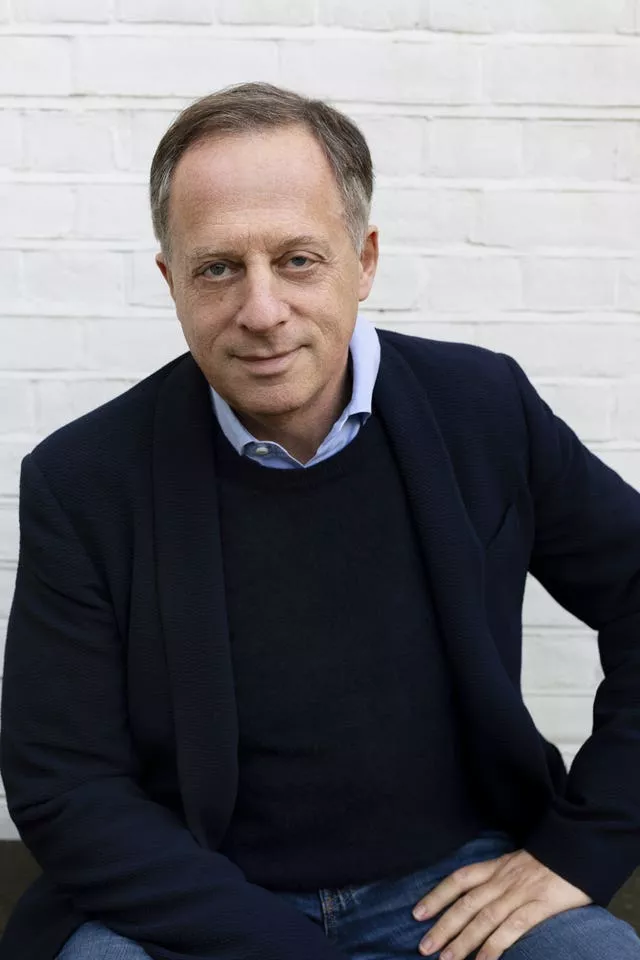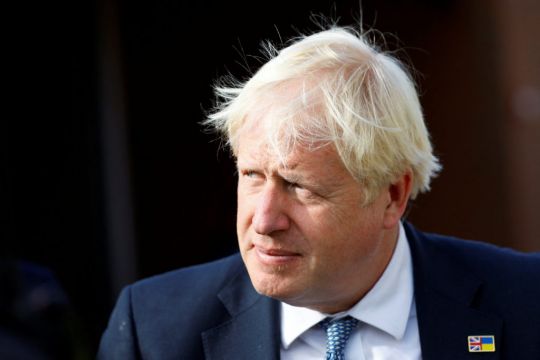BBC chairman Richard Sharp has asked for a scrutiny panel to examine potential conflicts of interest over his role in helping former British prime minister Boris Johnson secure a loan.
Mr Sharp insisted he was “not involved in making a loan or arranging a guarantee” for the then prime minister but acknowledged the row is a “distraction” for the broadcaster.
He told BBC staff members his role was merely to “seek an introduction” for Sam Blyth, who reportedly acted as guarantor for a loan to Mr Johnson, “to the relevant official in government”.
He said: “This matter, although it took place before I joined the BBC, is a distraction for the organisation, which I regret. I’m really sorry about it all.”
Mr Johnson has insisted that Mr Sharp had no knowledge of his personal finances.
Mr Sharp was in the process of applying for the BBC chairmanship when he made the introduction and was subsequently appointed to the role at the corporation.
He said: “I was not involved in making a loan, or arranging a guarantee, and I did not arrange any financing. What I did do was to seek an introduction of Sam Blythe (sic) to the relevant official in government.”
He said Mr Blyth – a distant cousin of Mr Johnson whom Mr Sharp has known for more than 40 years – had “become aware of the financial pressures on the then prime minister, and, being a successful entrepreneur, he told me he wanted to explore whether he could assist”.
Mr Sharp, who was working in Downing Street as a special adviser to the Treasury during the pandemic, explained the situation to Britain's cabinet secretary Simon Case.
“I went to see the cabinet secretary and explained who Sam was, and that, as a cousin of the then prime minister, he wanted to help him if possible,” Mr Sharp said.
“I also reminded the cabinet secretary that I had submitted my application for the position of BBC chairman.
“We both agreed that, to avoid any conflict, I should have nothing further to do with the matter. At that point there was no detail on the proposed arrangements and I had no knowledge of whether any assistance was possible, or could be agreed.
“Since that meeting I have had no involvement whatsoever with any process. Even now, I don’t know any more than is reported in the media about a loan or reported guarantee.”
In his message to BBC staff, Mr Sharp acknowledged “distractions such as this are not welcome” and said he has asked the nominations committee of the corporation’s board to look at the matter.
“Our work at the BBC is rooted in trust,” he said.
“Although the appointment of the BBC chairman is solely a matter for the government, I want to ensure that all the appropriate guidelines have been followed within the BBC since I have joined.
“The nominations committee of the BBC board has responsibility for regularly reviewing board members’ conflicts of interest and I have agreed with the board’s senior independent director, Sir Nicholas Serota, that the committee shall assess this when it next meets, reporting to the board, and in the interests of transparency publish the conclusions.”
Mr Johnson said Mr Sharp has no knowledge of his personal finances.
Speaking to Sky News on Monday morning, Mr Johnson said: “This is a load of complete nonsense – absolute nonsense.
“Let me just tell you, Richard Sharp is a good and wise man but he knows absolutely nothing about my personal finances – I can tell you that for 100 per cent ding dang sure.
“This is just another example of the BBC disappearing up its own fundament.”

British prime minister Rishi Sunak said the BBC chairman went through a “rigorous” and transparent recruitment process.
“This appointment was obviously made by one of my predecessors before I became prime minister.
“The appointments process itself for appointing the BBC chairman is a rigorous process, it is independent, there are two stages to it, it is transparent and published online.
“Mr Sharp’s appointment went through that full process.”
Shadow culture secretary Lucy Powell has written to the Commissioner for Public Appointments asking for an investigation into the process.
The Liberal Democrats said the £115,000 allowance for Mr Johnson to run his office as ex-prime minister should be withdrawn until he answers questions about his financial arrangements.
The party’s chief whip, Wendy Chamberlain, said: “Boris Johnson has a dismal track record of avoiding scrutiny and covering up his lies and deceit. We know he’s only interested in following the money, so it’s time to hit him where it hurts – his wallet.”







